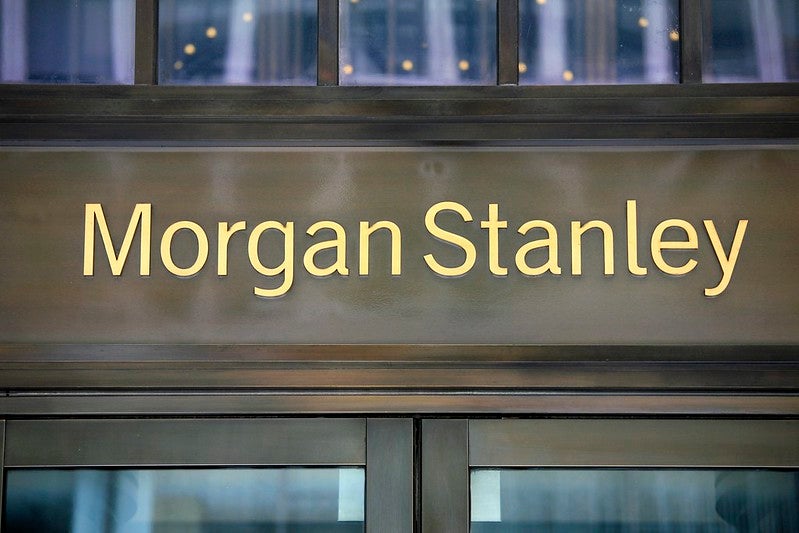
Islamic finance is a $2trn industry, but despite this its potential wealth management services are often underserved especially in non-majority Muslim countries. Saloni Sardana investigates how and why the sector is not living up to its potential.
It’s not only the lack of products that is often cited as a challenge for Islamic finance in general, but also the need for the sector to do more to attract a more diverse investor base.
The Islamic finance industry grew by 6% to reach $2.4trn by the end of 2017. However, 2018 Global Islamic Finance Report notes this was the fifth consecutive year of declining growth.
But legal experts and wealth managers are optimistic about the sector and foresee a rise in popularity for Shariah-compliant products.
Nada Jarnaz, partner specialising in Islamic finance at legal firm Howard Kennedy, says: “The Islamic investment community is well serviced in those jurisdictions where Muslims make up the majority of the population, such as Malaysia, however the choices become somewhat limited in those jurisdictions when Muslims represent the minority, which is the case in European countries.”
“Islamic finance and investing isn’t limited to Muslims, and anyone can invest and have access to those opportunities, which means that creating investment opportunities for those looking for Shariah compliant investments could in fact reach a much wider market,” she adds.
How well do you really know your competitors?
Access the most comprehensive Company Profiles on the market, powered by GlobalData. Save hours of research. Gain competitive edge.

Thank you!
Your download email will arrive shortly
Not ready to buy yet? Download a free sample
We are confident about the unique quality of our Company Profiles. However, we want you to make the most beneficial decision for your business, so we offer a free sample that you can download by submitting the below form
By GlobalDataCharacteristics of Islamic finance
Islamic financial institutions work on a philosophy of prohibiting transactions considered immoral and promoting greater social justice by sharing risk and reward.
The customer and the Islamic bank share the risk of any investment on agreed terms, and divide any profits between them.
Islamic finance does not allow creating new financial risks in order to gain profit; it is about protecting society from fraud and social tensions. Shariah products also stress accountability, fairness and transparency.
In addition to risk sharing and the prohibition of interest, under the principles of Shariah, investment is also disallowed in businesses that deal with alcohol, pork, gambling, weapons, tobacco, media, ‘conventional’ financial institution. The most distinctive element of Islamic finance is the prohibition of interest (also known as ‘Riba’), whether nominal or excessive, simple or compound, fixed or floating.
Product range limitations
A number of experts interviewed by Private Banker International (PBI) note the industry offers a lack of products and services tailored to Shariah investors.
A spokesperson for Malaysia-based Maybank’s Wealth Management & Consumer Segmentation division, comments: “There is a need for the industry to develop and offer a more comprehensive package of wealth management services and solutions to meet the diverse needs of clients. For the Islamic wealth management segment in particular, its offerings are currently heavily dependent on the Islamic fund management services.”
“The industry’s future therefore lies in the ability to develop and offer more sophisticated investment solutions such as [a] Shariah Compliant Structured Product and to complement this with other Islamic wealth management services including strategies for wealth preservation and distribution i.e. legacy planning,” the spokesperson adds.
Mohammed Saqub, head of Islamic Finance at law firm, Shakespeare Martineau, echoes Maybank’s views and says: “Muslims represent nearly a quarter of the world’s population, but the relative immaturity of the Islamic investment sector is revealed by a narrow product range.
“Products for equities and real estate are well established, but those for fixed income funds are less so. However, solutions are being developed and market participants that are involved in the development phase of funds are likely to derive significant benefits. More retail and institutional investment products are required.”
Maybank provides various Shariah investment classes according to their risk profile. It currently provides, Sukuk, Equity, Mixed Asset and Money Market products.
The spokesperson for Maybank explains: “Our client also has opportunity to invest in Maybank Islamic Investment Account (IA) based on the concept of Mudarabah (profit sharing) that investing in a diversified portfolio of assets with capital preservation, financial security and steady returns through low risk (Daily Fund-i) and low to medium risk (Term Fund-i) investments.”
Real-estate affinity
As Shariah investment is somewhat limited, more diversification is needed to attract investments in other asset classes.
Harsh Kamani, CEO of Sun Global Investments Middle East, explains: “The industry needs more ideas and product developments along with more geographical and sector diversification. At present most of the Shariah compliant opportunities come from the GCC or Malaysia and max concentration is real estate or financial sector. The Islamic investment community needs to do more to attract a more diverse investor base.”
Kamani says that real estate funds, Sukuk and Shariah are the most popular Islamic funds.
“These are popular since they are able to provide a diversification to investors with Islamic investing mandates,” he says.
Saqub comments: “From my interactions with HNW clients, there is still a heavy focus on investing in real estate. While they recognise the importance of having a diverse portfolio of investments, it is equally, and, in many cases more important for them to have investments that are genuinely Sharia-compliant. HNW clients want to preserve wealth and the return needs to be competitive.”
Sukuk are Islamic bonds that are structured in a way to generate returns to investors. They are issued and traded around the principle of riba. After maturity of the bond the value is repaid at the end of the period, and the money is returned.
Outlook
In the UK alone, there are over 20 banks offering Islamic services, and around $728m of Islamic funds in the UK.
Saqub says the industry around the world is growing and recently, “exposure to ex-Soviet countries like Azerbaijan and gaining knowledge of Kazakhstan has convinced me that these governments would like to get more involved in the Islamic market, due to increased demand”.
“There is also a genuine desire not to Islamise traditionally non-Sharia-compliant products, but instead to look for genuine Sharia-compliant opportunities in the first instance,” he adds.
Kamani’s view in the future is that the Islamic investments sector will continue to grow in size and scale,” thereby reducing the cost of raising capital thereby attracting more investors, borrowers etc.”.
“Even certain financial centres like UK, Hong Kong, Singapore etc. have realised the growth opportunities in the Shariah compliant investment space and making changes to their regulations to attract investment.” “We are seeing HNW client increase their exposure to these kinds of investments especially in the fixed income segment.”
“We are also seeing a lot more smaller sized corporates using sukuks for their corporate finance requirements. The industry is maturing which has driven down the cost of issuance and made it more affordable for smaller corporates to access this market especially on the private placements for smaller issue sizes,” he concludes.
Maybank wealth management academy
In 2017, the Malaysia Securities Commission launched its Islamic Fund and Wealth Management Blueprint.
In June 2018, Maybank partnered with the Wealth Management Institute (WMI) of Nanyang Technological University Singapore (NTU) to set up a wealth management academy.
The establishment of the Maybank Wealth Management Academy (WMA), considered to be the first of its kind by a bank in Malaysia, will enable the bank to develop the skill set of its personnel.
It will also provide a practice-based curriculum to the sales staff, wealth specialists and managers across the bank’s private, premier and privilege wealth client segments.
The training services will be provided to Maybank employees in Malaysia, Singapore, Indonesia, Philippines, Hong Kong, Cambodia, Brunei and London.
The spokesperson for Maybank explains: “With the support from policymaker, regulators and participation from the service providers such as financial institutions and asset management and with the appropriate action plans, we foresee it will help to grow the Islamic funds and wealth management.”
The picture for Islamic finance is promising despite a fifth consecutive year of declining growth and a fourth year of single-digit growth.
Experts speaking to PBI have all put importance on the expanding of the product range, going well beyond real estate and that requires greater action from wealth managers and product providers.
Jarnaz points out that Islamic finance is not exclusive to Muslims.
Greater education about this growing segment may foster greater demand from non-Muslim investors and countries where Muslim population is lower.








